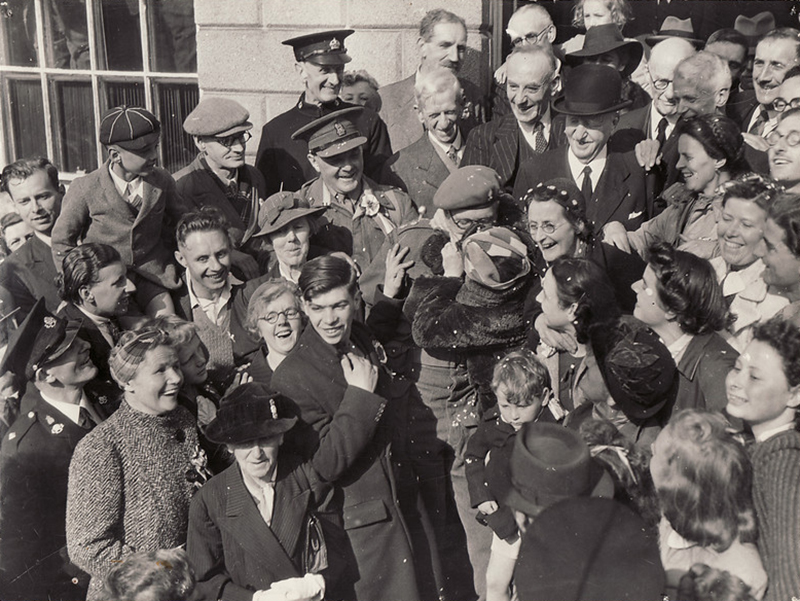When it became clear that the Islands would be occupied, the civilian populations faced the traumatic decision to leave their homes and move to England, divide their family by evacuating just their children or to remain together living under German rule. Those choosing to remain experienced five hard and hungry years living under stifling rules and regulations.
Almost half of the resident population of Guernsey remained on the Island during the German occupation; four fifths of children and 12,000 adults had been evacuated at short notice prior to the bombing of St. Peter Port harbour by German forces on June 28 1940. Around 6,000 of a population of 47,000 evacuated from Jersey. Conversely, virtually all residents of Alderney were evacuated and the occupying forces arrived to an almost uninhabited Island. In contrast, no Sark residents left the Island. One family lived in Herm Island and Lihou was abandoned. Mainly used for hunting and training exercises, these smaller Islands remained largely unoccupied by German forces.
The Islands were liberated by Allied Force 135 on the 9 & 10 May 1945. While the liberation was achieved without armed conflict, sadly both British and German soldiers went on to lose their lives clearing mines.
The effects of the occupation were far reaching. Food shortages had emaciated the inhabitants of the Islands and German fortifications dotted the landscape. Many evacuated children suffered an inability to re-connect with their families, which would linger throughout their lives.


